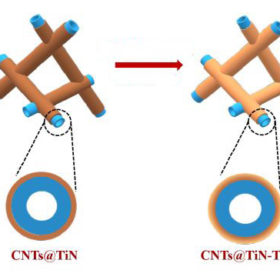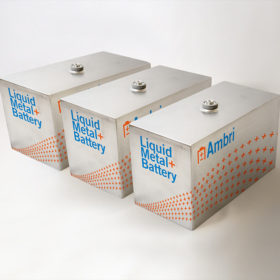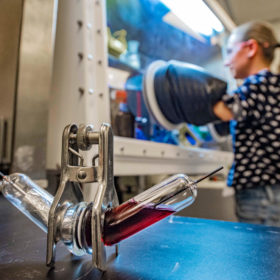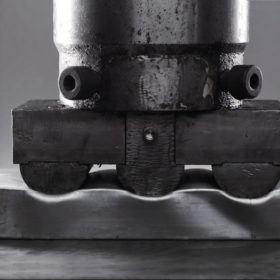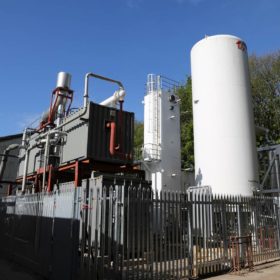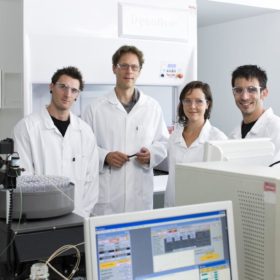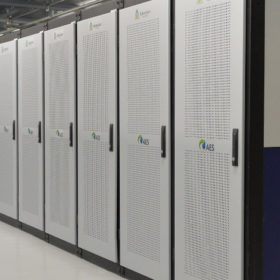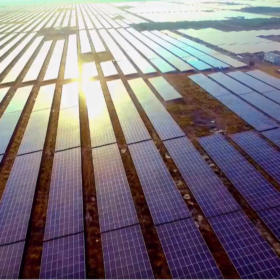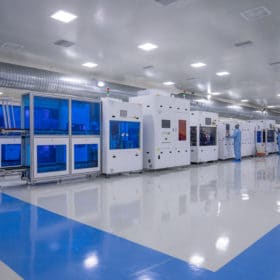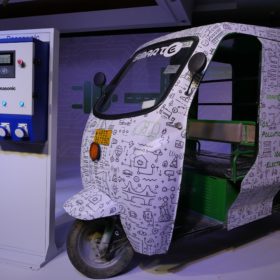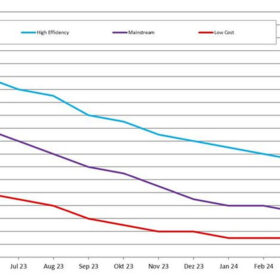Lithium-sulfur battery with shorter charging time, longer lifespan
Japanese scientists have developed a new lithium-sulfur battery by using titanium oxide and titanium nitride to prevent the formation of polysulfides during the fabrication process. This allows the battery to retain 85% of its capacity after 500 cycles at 2 C.
Tata Power lands 50 MW/50 MWh solar-plus-storage project in Ladakh
The company’s arm Tata Power Solar has received the notice of award to build a 50 MW (DC) solar plant integrated with a 50 MWh battery energy storage system at Phyang village in the Leh district. The project’s order value is approximately ÌNR 386 crore (US$ 52 million).
Reliance New Energy Solar to invest in US-based liquid metal battery firm
The clean energy arm of Reliance Industries Limited will invest US$ 50 million in MIT-incubated Ambri. As part of the transaction the two companies will also partner to develop and manufacture liquid metal batteries in India.
Sandia researchers develop new grid-scale energy storage battery
The battery operates at 230 degrees Fahrenheit, opening what researchers said could be “a whole cascading cost savings” including everything from less expensive materials to less insulation.
Indian scientists develop zinc-iron redox flow battery with zero dendrite growth
Scientists in India fabricated a redox flow battery based on zinc and iron that showed strong storage characteristics and no signs of degradation over 30 charge-discharge cycles. The battery also showed no signs of dendrite formation, overcoming one of the key hurdles for redox-flow batteries based on these low-cost, abundant materials.
Lithium-ion technology to lead the Indian battery energy storage systems market by 2030
A new report projects Lithium-ion technology to lead the Indian battery energy storage systems market by 2030 as prices for lithium iron phosphate (LFP) and lithium nickel-cobalt-manganese (NCM) battery technologies fall.
A closer look at liquid air energy storage
A British-Australian research team has assessed the potential of liquid air energy storage (LAES) for large scale application. The scientists estimate that these systems may currently be built at a cost between €300 and €600 per kilowatt-hour and that a positive business case could be favored by certain conditions, including a determined price structure in the energy market and the presence of a grid unable to support high levels of renewable energy penetration.
Aussie startup invents breakthrough non-toxic battery electrolyte that’s cheaper ‘by factor of 100’
Professor Thomas Nann told pv magazine Australia that a breakthrough idea was almost too simple: “Actually when we submitted the patent in the first place, the patent officers came back to us and said ‘well, that’s too trivial’ and we made exactly that argument – why did no one else do that then?” said Nann.
SECI to issue 2 GWh energy storage system tender by August end
The Solar Energy Corporation of India (SECI) shall sign a 25-year power purchase agreement with the successful bidders for these energy storage system projects. The projects are to be set up on a build-own-operate basis.
The prospects for solar in a 1.5C world
We will need 10.7 TW of clean energy generation capacity this decade to stay on track with the most ambitious of the climate change paths agreed in Paris, which would include plenty of solar investment and jobs, according to the International Renewable Energy Agency.
